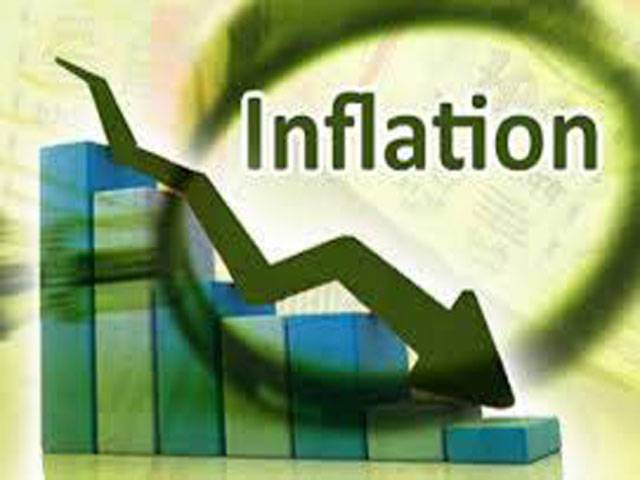ISLAMABAD-Inflation has eased to 8 per cent in December on the back of a slight decline in the price of perishable products.
Deceleration in inflation was noticed for the third consecutive month in December. Inflation measured through Consumer Price Index (CPI) was recorded at 7.97 per cent in December this year over the same period of last year, according to the latest data of Pakistan Bureau of Statistics (PBS). Food inflation is still in the double-digits, posting a rise in the outgoing month.
It has shown slight decline as compared to 8.91 per cent of October and 8.3 per cent in November this year. “Continuous efforts of the government are dragging inflation down which is evident from declining trend in SPI for the past four weeks,” said ministry of finance.
The ministry of finance in its recent report stated that international food prices continued to rise. “Government policies were put in place to mitigate the effects of international food prices on domestic prices and to monitor and improve the functioning of the domestic markets,” said ministry in its report. In November inflation came down to 0.8 per cent from 1.7 in October which is expected to reduce further in December. Thus, for December, inflation is expected to fall within a range of 7.8 and 8.3 per cent.
According to the PBS data, the CPI-based inflation was recorded at 8.63 per cent in first half (July to December) of the current fiscal year. Meanwhile, the Sensitive Price Indicator (SPI), which gauges rates of kitchen items on weekly basis, increased by 11.48 per cent. Similarly, the wholesale price index (WPI) based inflation enhanced by 4.44 per cent in the period under review.
The break-up of inflation of 7.97 per cent in December 2020 showed that food and non-alcoholic beverages prices increased by 13.3 per cent. Similarly, health and education charges went up by 8.08 per cent and 1.24 per cent, respectively. Similarly, prices of utilities (housing, water, electricity, gas and fuel) increased by 3.45 per cent in last the month. Meanwhile, the prices of alcoholic beverages and tobacco went up by around 6.02 per cent.
Price of clothing and footwear increased by 9.64 per cent and furnishing and household equipment maintenance charges 7.66 per cent. Recreational charges and those related to culture went up by 4.44 per cent in the period under review, while amounts charged by restaurants and hotels by 9.97 per cent in December 2020 as compared to the same month last year.
In urban areas, the food items which saw their price increased during December 2020 over November this year included: eggs (15.67 per cent), spices (6.88 per cent), butter (6.75 per cent), dry fruits (4.57 per cent), vegetable ghee (3.07 per cent), cooking oil (2.2 per cent) and fish (1.51 per cent). In non-food commodities, prices of following things have increased like electricity (5.96 per cent), transport services (5.07 per cent), hosiery (3.43 per cent), cleaning and laundering (2.74 per cent), motor vehicle accessories (2.06 per cent), woolen cloth (1.39 per cent) and drugs & medicines (1.29 per cent).
Meanwhile, in urban areas, following commodities prices showed decline: onions (29.12 per cent), tomatoes (27.12 per cent), vegetables (19.18 per cent), sugar (18.07 per cent), potatoes (13.12 per cent), Wweat (4 per cent), fruits (1.85 per cent) and pulse gram (1.23 per cent). In rural areas, the commodities which prices enhanced included eggs (14.08 per cent), spices (4.19 per cent), cooking oil (3.71 per cent), chicken (3.21 per cent), vegetable ghee (3.13 per cent), mustard oil (2.63 per cent), fish (2.47 per cent), pulse mash (2.01 per cent) and dry fruits (1.95 per cent).
The government has imported wheat and sugar to bridge shortfall and improve its supplies in the market. The inflation is expected to recede further with the arrival of new crops of vegetables, sugar crushing season, and marginal decline in the petroleum prices.
Sunday, May 18, 2025
Inflation eases to 8pc in December

PTI unites leadership to push for Imran Khan’s release
3:18 PM | May 18, 2025
2 persons killed in road accident in Basal
May 18, 2025
Water level in Khanpur Dam drops significantly
May 18, 2025
5 persons held for possessing illegal arms
May 18, 2025
-
Lahore emerges among safest global cities in Numbeo 2025 index
-
Lahore emerges among safest global cities in Numbeo 2025 index
-
India’s suspension of Indus Water Treaty legally baseless
-
Seventh polio case reported in Pakistan amid nationwide vaccination drive
-
Pakistan reports sixth polio case of 2025
-
PTA begins issuing VPN licences to regulate usage
Culture Shift
May 18, 2025
Tactical Shift
May 18, 2025
Unmasked Cruelty
May 18, 2025
India Isolated
May 17, 2025
Descent into Hell
May 17, 2025
Fostering Entrepreneurship
May 18, 2025
Behind a Promising Job Offer
May 18, 2025
Indo-Pak Wisdom
May 18, 2025
Traffic Signal at Shahzad Town
May 18, 2025
English a Measure of Intelligence?
May 17, 2025
ePaper - Nawaiwaqt
Nawaiwaqt Group | Copyright © 2025





